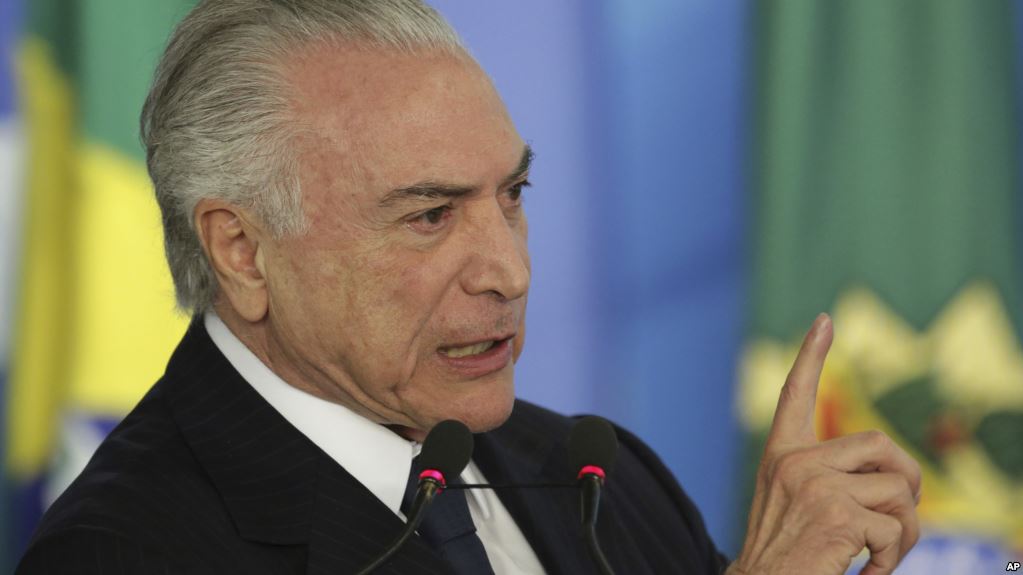This material belongs to: ABC News.
Embattled Brazilian President Michel Temer quickly presented his legal defense against corruption allegations to lawmakers on Wednesday, a move seen as a bid to reduce the likelihood of being suspended from office and tried at the Supreme Court.
Temer’s lawyer submitted the defense on the second day of Chamber of Deputies commission proceedings to consider the matter, eight days ahead of deadline.
Allies of the president want a quick vote on the issue in hopes of putting an end to the political uncertainty this month.
However his adversaries favor a more drawn-out process with ample time for any more damaging information to emerge, figuring it improves their prospects of winning over votes against the unpopular leader.
Brazil’s top prosecutor accuses Temer of accepting bribes from businesspeople in exchange for political favors. Temer, who is also being investigated for possible obstruction of justice and criminal organization, denies the allegations.
Regardless of the commission’s decision on the corruption count, the full house will vote on Temer’s fate with a two-thirds super majority required to suspend him.
The 98-page defense delivered to the commission by attorney Antonio Mariz de Oliveira argued that the accusation against Temer is based on “assumptions” and “fiction.”
Temer’s defense also wants lawmakers to disregard a recording of the president in a secret meeting with an executive of meatpacker JBS that triggered the accusations.
Oliveira did not rule out the possibility of Temer appearing before congress to defend himself.
Brazil’s president isn’t the only politician facing corruption charges. A sprawling investigation into kickbacks and illegal campaign financing has ensnared dozens of the country’s political elite.
On Wednesday, a federal court in Sao Paulo, however, dismissed an investigation of former President Fernando Henrique Cardoso for illegal campaign financing. The allegations dated to campaigns in the 1990s, and the judge ruled the statute of limitations had expired, according to the court’s press office.
 info@anticorr.media
info@anticorr.media

